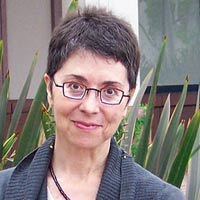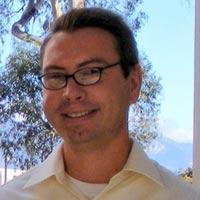Three New Books from UCSB Anthropologists
Academics Study Mexico, India, and Moundville
With a new year comes the publication of three new books from UCSB anthropologists: Casey Walsh’s Building the Borderlands: A Transnational History of Irrigated Cotton Along the Mexico-Texas Border, Mary Hancock’s The Politics of Heritage from Madras to Chennai and Gregory Wilson’s The Archaeology of Everyday Life at Early Moundville. In email-based conversation with The Indy, the three professors discussed their works’ focus, methods, and fascinating findings.

Living in northern Mexico, Casey Walsh wanted to compile the region’s oral history; unfortunately, local historians turned out to be better suited to the job. Nevertheless, his time there revealed how integral the area’s cotton industry was in the development of its society, so he researched its history instead. “Economy and ecology are the big theoretical perspectives that I use,” Walsh wrote, “and I share these perspectives with scholars across the disciplines: history, anthropology and geography in particular.”
Walsh’s study of Latin American anthropology and history in graduate school formed an interest in land reform and labor radicalism, which led to research in how the cotton industry worked with the government and the government-industry relationship in general. “In both countries the business of government is business, to quote Calvin Coolidge,” Walsh wrote. “But the Mexican Revolution taught elites that the government needed to take a strong role in promoting positive development and ameliorating the negative social effects of economic growth. Still, today, the state in Mexico has a wider role in managing the economy and promoting social welfare than that which is deemed acceptable in the U.S. In times of crisis, such as the 1930s or the one we are in now, the ability of the government to make decisive interventions is important.”

Mary Hancock’s book examines Chennai (formerly Madras), an Indian port city and, with its roots as an East India Company trading post, one of that country’s first truly global ones. Though life in Chennai was once relatively slow and steeped in indigenous tradition, this changed, wrote Hancock, when the state “aggressively pursued liberalization by relaxing regulations for foreign investment in economic and infrastructure development and by promoting new industrial ventures, such as software development, biotechnology, and aquaculture.” Such an upheaval sparked concerns about what else economic reform might affect.
In order to compete in a global marketplace, cities such as Chennai have sought to develop well-known “brands” by, among other efforts, constructing lavish attractions, establishing historical sites, and instituting foreign-investor incentives like tax holidays. “Many of these changes, however, have come at the expense of the urban poor, who are increasingly displaced and disenfranchised,” wrote Hancock, raising questions of “what is being lost, as well as how traditional cultural knowledge can shape critical interventions in contemporary political institutions.” Finding the answers demanded interdisciplinary research with an anthropological core: Hancock interviewed architects, officials, tourism professionals, and the visiting public, but also incorporated historical texts, maps, primary records, exhibition designs, and architecture into her work.

While Gregory Wilson’s book takes a look at a well-known archaeological park, it’s a look from a different angle than most archaeology enthusiasts are used to. Since its first major excavations in the very early 20th century, Alabama’s Moundville Archaeological Site has yielded artifacts of the regional culture that existed there between the 1000s and the 1300s. Wilson’s research centers on the household remains found at Moundville, important pieces that reveal much about the Moundville residents’ day-to-day existence. Analyzing the nature of residential occupation in Moundville, Wilson was able to reconstruct the community’s living patterns and societal structure, shedding new light on the surprisingly complex interplay of status, inequality, and power in a long-lost community.



